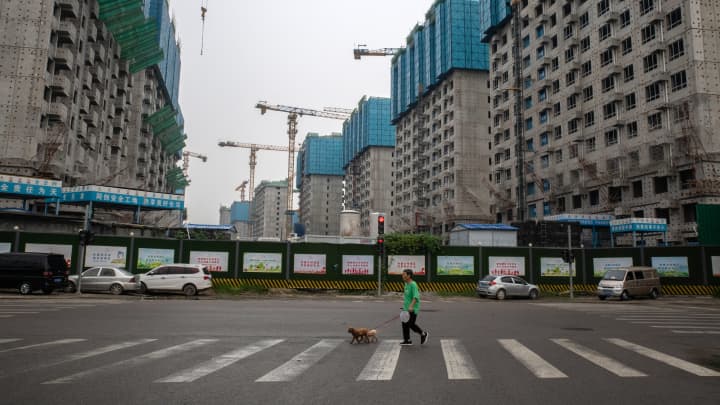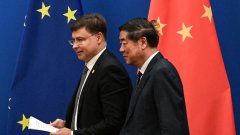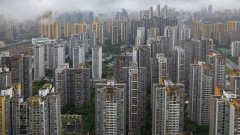
Online retail sales of physical goods rose by 6.6% in July from a year ago, a sharp slowdown from double-digit increases in recent months, according to CNBC calculations of official data.
Within retail sales, catering saw the biggest increase of 15.8%, while sports and entertainment products saw a 2.6% year-on-year increase. Big-ticket items such as autos and home appliances saw sales declines in July from a year ago.
Jewelry saw sales drop by 10% during that time.
Retail sales posted the slowest growth since a decline in December, according to official data.
The statistics bureau on Tuesday released retail sales from services for the first time — showing a 20.3% increase for the first seven months of the year from a year ago, pointed out Bruce Pang, chief economist and head of research for Greater China at JLL.
He added that some services sector spending, especially in tourism, isn't captured by the official data because it looks at businesses operating above a certain scale.
The bureau did not release monthly figures or a monetary amount for retail sales of services.
The statistics bureau noted an "intricate and complicated" situation overseas and domestically, and "insufficient" domestic demand.
"We must intensify the role of macro policies in regulating the economy and make solid efforts to expand domestic demand, shore up confidence and prevent risks," in an English-language release.
After an initial rebound from the pandemic earlier this year, China's economy has come to grips with long-standing problems and slowing global demand for its products.
, following a 12.4% drop in June. Factory activity in July, according to an official survey.
Domestic demand has remained muted outside of summer tourism. Imports fell by 12.4% year-on-year in July and have mostly declined each month from the same period in 2022.
in July, adding to growing worries about deflation.
However, core CPI, which strips out food and energy prices, actually posted its fastest increase in July since January. Factory activity in July picked up to its highest since March, despite a continued decline.
is an ongoing slump in the massive real estate sector. have come to the forefront again with developer Country Garden now on the brink of default.
When asked Tuesday about and the real estate slump, statistics bureau spokesperson Fu Linghui said those events have affected market expectations.
But he described the real estate sector overall as being in a period of "adjustment" and that the current "phase" would pass as policy changes took effect. That's according to a CNBC translation of his Mandarin-language remarks.
Top leaders in late July signaled a on real estate speculation. Authorities have announced a to boost consumption, private sector investment and foreign investment.
Earlier on Tuesday, the People's Bank of China called the medium-term lending facility (MLF) — to 2.50% from 2.65%.
The last time the central bank cut by more than 10 basis points was in April 2020, according to Larry Hu, chief China economist at Macquarie.
"To be sure, cutting rate is far from enough. The biggest issue in the Chinese economy right now is the property sector," Hu said.
"The property sector is at a critical juncture and the key concern is the downward spiral between sales and confidence," he said. "Therefore, it's hard for individual developers to save themselves. Policy is the only game changer for now."
So far the overall approach to additional stimulus has been cautious, especially in real estate.
"Beijing has already done some things to ease the tensions in the property sector, but it has been too slow and too little, in our view," Ting Lu, chief China economist at Nomura said in a note Monday.
"We believe that at some point in time Beijing will be compelled to take more measures to stem the downward spiral."




